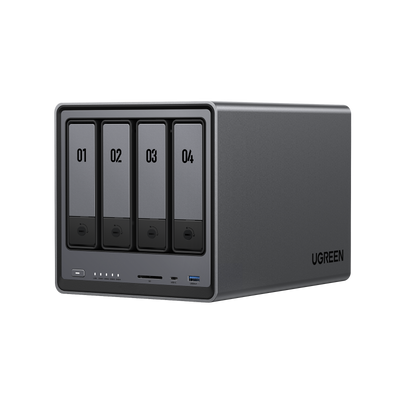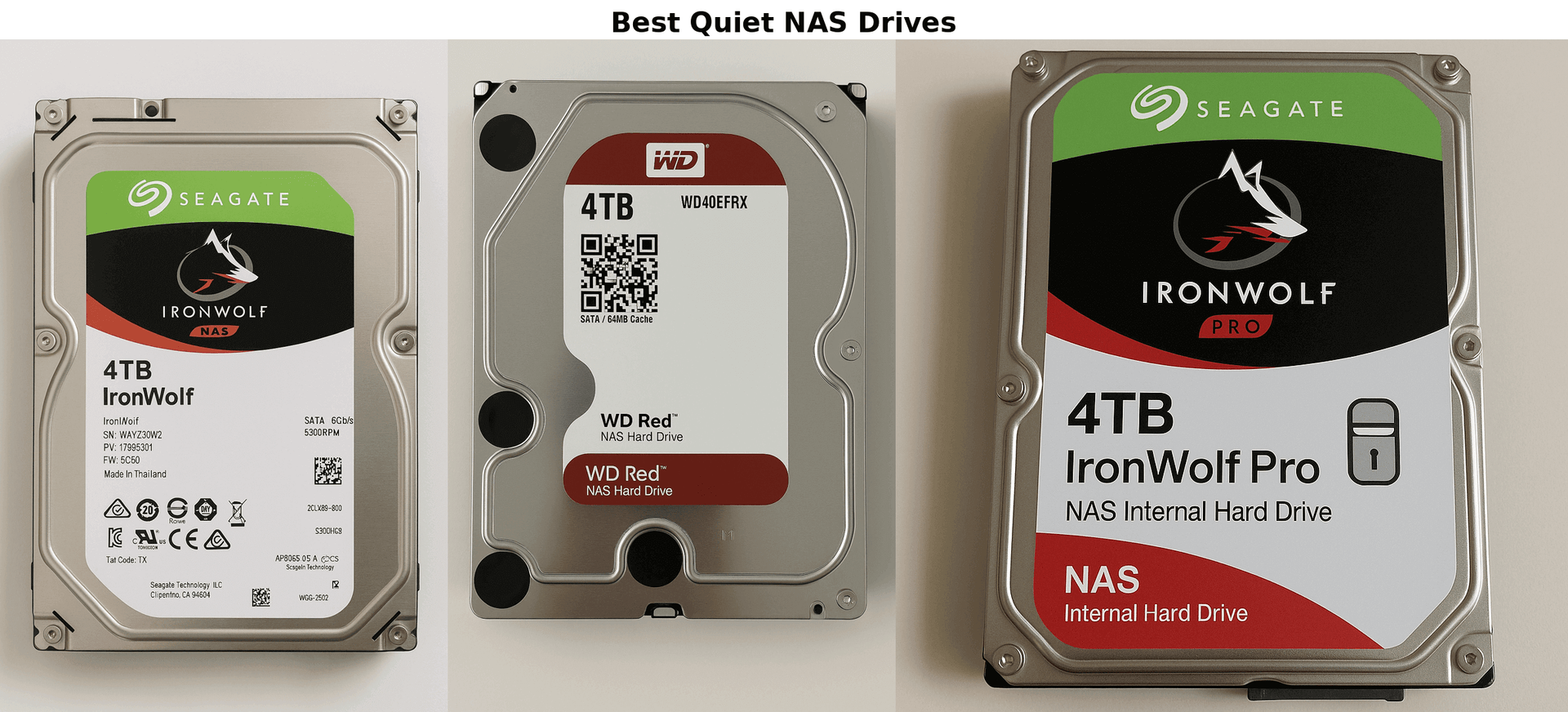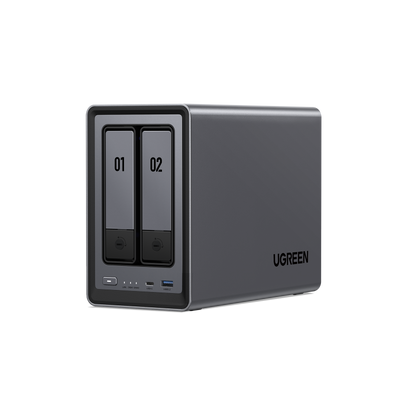5 Key Benefits of Using NAS Systems for Home and Business Storage
In our previous post, we tackled the question, “what is NAS storage?” – introducing Network-Attached Storage (NAS) as a centralised solution that connects to your network, letting you access files from any device, whether you’re at home in Manchester or working remotely in the Highlands. Now, we’re extending that discussion to uncover the practical benefits that make NAS a standout choice for managing your digital life.

Key Takeaways:
- NAS (Network-Attached Storage) offers a cost-effective alternative to cloud storage by eliminating recurring monthly fees, providing flexible, scalable storage solutions.
- It serves as a central hub for your data, making files accessible from any device on your network, whether at home or on the go, without the need for third-party servers or subscriptions.
- NAS adapts to various user needs, from home users storing photos to businesses handling large data volumes, offering easy scalability and customisation with options for both HDDs and SSDs.
- Security is a top feature, with local storage, encryption, user permissions, and the ability to pair with IP cameras for enhanced physical security.
- NAS is a versatile solution that grows with you, offering robust data management, backup, and security for homes, small businesses, and large enterprises alike.
Cost-Effectiveness – No Monthly Fees
Managing their digital storage is the creeping cost of cloud subscriptions. Services like Google Drive or Dropbox might start cheap, but as your photos, videos, and work files pile up, those monthly fees can quickly add up – sometimes hitting £20 or more per month for decent storage. Over a year, that’s £240 gone, and for small businesses or families on a budget, it’s money that could be better spent elsewhere.
Enter Network-Attached Storage (NAS), which provides flexible storage with a refreshing twist: no recurring fees. You buy the device once, and that’s it – your storage is yours to keep. Whether you’re a homeowner storing years of family snaps or a startup juggling client projects, NAS lets you sidestep the subscription trap. Want more space? Just add your own hard drives or SSDs, tailoring the cost to your needs without being locked into a pricey plan.
Take a real-world example: a small UK photography business switched from a £15 monthly cloud plan to a 2bay NAS system costing £309 upfront. Within two years, they saved over £60 – and that’s not counting all the extra storage space and the added security of local storage. When you need plenty of space without breaking the bank, NAS proves itself as a financially savvy choice, giving you control over your data and your wallet.
{{UGPRODUCT}}
Centralised and Accessible Storage
Your family photos are scattered across phones, laptops, and an old external drive that’s gathering dust somewhere in the house. Or maybe you’re a small business owner whose team wastes time emailing files back and forth because there’s no single place to find them. These are the kinds of frustrations Network-Attached Storage (NAS) wipes away with one simple trick – it acts as a central hub for all your data, accessible from anywhere on your network.
With NAS, everything lives in one spot. Plug it into your router – usually with a speedy Ethernet cable – and it’s ready to serve files to your devices, whether that’s a tablet in the kitchen, a PC in the study, or a phone on the commute. For professionals juggling remote work, this means grabbing a report from your NAS while on a train, no fuss needed. Families benefit too – everyone accessing holiday videos from a single system, no more hunting through cluttered folders.
What’s more, NAS makes access effortless. Many operating systems, like the one in UGREEN NAS, offer browser-based tools or apps, turning your NAS into a private cloud you control. No subscriptions, no third-party servers – just your data, available whenever and wherever you need it. This blend of convenience and simplicity is a game-changer, keeping your digital life organised and within reach.

Versatile Use Cases for Every User
NAS storage meets the needs of anyone from families to entrepreneurs to big businesses. Its versatility is what sets it apart, making it a valuable addition no matter who you are or what you need.
For Homes
It can store and organise photos and videos – think a decade of birthday snaps or Lake District holiday clips – using tools to sort them neatly by date or face. Worried about losing them? NAS handles automatic backups for your PCs, Macs, and phones, keeping everything safe without you lifting a finger. For those looking for more ways to manage and back up files on Macs, this guide on managing Mac files with NAS provides detailed tips and steps to keep your data organised and secure. Plus, with home security on the rise, it can pair with IP cameras to record footage, turning your NAS into a watchful guardian for your property.
For Small Businesses
Small firms get a boost from NAS too. It’s perfect for collaboration – imagine a bakery sharing recipes or a design team tweaking graphics, all pulling files from the same system in real time, even if half the team’s remote. Backups are a breeze too, protecting customer data or invoices from disaster without pricey cloud fees. Some even use it to run lightweight tools like accounting software, making NAS a quiet workhorse for growing businesses on tight budgets.
For Enterprises
Big players need big solutions, and NAS delivers. It scales up to handle terabytes or even petabytes of data – ideal for tech firms managing virtual machines or retailers archiving years of sales records. With RAID setups, it ensures speed and redundancy, so critical operations don’t skip a beat if a drive fails. Whether it’s supporting thousands of users or clustering multiple units, NAS keeps large businesses running smoothly with reliable, high-performance storage.
From a flat in Bristol to a corporate office in Edinburgh, NAS adapts to every scenario. It’s this flexibility that makes it a standout choice – tailored solutions for every user, all in one clever package.
Scalability and Customisation
For smaller setups, NAS offers a simple way to expand. Start with a basic model – say, a two-bay unit holding a few terabytes – and add more hard drives as your needs increase, like when your photo library doubles after a new baby arrives. Larger systems take it further, letting businesses scale up by clustering multiple NAS units together, handling petabytes of data for things like research archives or e-commerce inventories. It’s flexibility that matches your pace, not the other way around.
Customisation is another win. You decide what goes inside – affordable hard drives (HDDs) for bulk storage or zippy solid-state drives (SSDs) for faster access – tuning performance and cost to suit you. A freelancer might pop in a couple of HDDs for video projects, while a larger firm opts for SSDs to speed up team file sharing. Businesses and homes alike value options, and NAS delivers a tailored solution that evolves with your demands – no forced upgrades or rigid plans required.
Enhanced Security and Control
In a world of data breaches and privacy scandals, keeping your files safe is a top worry – whether you’re a parent guarding family photos or a business owner protecting customer details. Cloud storage might leave you wondering who’s peeking at your data or where it’s even stored. Network-Attached Storage (NAS) flips that uncertainty on its head by putting security and control firmly in your hands.
With NAS, your data stays local – right there in your home or office. No third-party servers halfway across the globe, just a device you own, sitting quietly on your network. This is a big deal for UK businesses under GDPR rules, where knowing exactly where data lives can mean the difference between compliance and a hefty fine. Add built-in encryption and user permissions, and you’ve got a fortress. Only the right people get in, whether it’s your spouse accessing holiday snaps or a colleague pulling a report.
It doesn’t stop there. NAS can even boost physical security by pairing with IP cameras – basically recording your front door while you’re away. A small business, for instance, might use NAS to store client contracts locally with encryption, then back them up securely, ticking both safety and legal boxes. Valuing peace of mind, NAS delivers a private, secure storage solution you can trust.
Conclusion
NAS is storage that grows with you, offering scalability and customisation to match your evolving needs, all while keeping your data secure and under your control.




